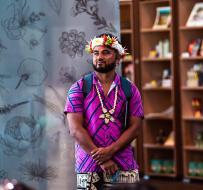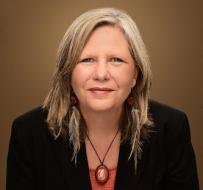Throughout the Pacific region, indigenous peoples have managed to not only survive, but thrive alongside isolated environments with finite land and resources. Through fostering an intimate relationship with the land, maintaining a wealth of cultural resources and traditional knowledge, as well as leading place-based conservation management practices in their communities, indigenous peoples of the Pacific are able to complement and enhance the natural productivity that surrounds them. As an ocean-faring and ocean-dependent people, indigenous communities in the Pacific have a special relationship to the sea, and the surplus of generational knowledge related to its management and conservation.
Indigenous peoples are adapting to climate change using their indigenous knowledge, traditional knowledge and customary practices. Through practices such as the examples on this page and in the info hub / resource section below, the adaptive capacity and level of resilience to the impacts of climate change is increased and ways of life and livelihoods continue.
In the Solomon Islands, the Babanakira people increase their resilience to extreme weather events using an indigenous early warning system to predict these events and traditional environmental practices to endure and recover from them. This early warning system is based on the Babanakira traditional knowledge of the link between seasonal events and events in the surrounding natural world. In order to mitigate the effects of events like storm surges and cyclones, coastal foreshores are revegetated with native species to increase soil resiliency, forested slopes are replanted and maintained to prevent land-slides, and a diverse variety of crops and wild plants decreases the likelihood of food shortages.
Communities in the Torres islands of the South Pacific experience seismic events that affect shoreline ecosystems and disrupt the distribution of groundwater. Communities have adapted to these conditions by distributing their crops over different areas of land and mixing the varieties of crops they grow. This practice, along with their knowledge of the various soils types and fertilities of the islands, also increases their resilience to droughts and periods of higher rainfall by ensuring that crops in different locations are not effected in the same way by the same events. The social organisation of communities here allows these practices and knowledge to be shared.
In Hawaiʻi, Kānaka Maoli or Native Hawaiians are working to rebuild traditional food systems that are more resilient to the effects of climate change, such as traditional fishponds or loko iʻa. Loko i‘a are unique aquaculture and mariculture systems that exist throughout Hawai‘i, and continue to feed and connect communities today. These ponds were designed over 600 years ago by ancestral Hawaiians to optimize the natural patterns of watersheds, nutrient cycles, and fish biology. Each pond is able to produce thousands of pounds of protein, harvested without damaging fish populations or threatening the wider ecosystem. While more support is needed to revitalize these food systems broadly, Indigenous communities through the Hawaiian archipelago are working to restore the traditional fishpond network. Loko iʻa not only have the potential to feed communities sustainably today, but can also restock reefs, prevent coral bleaching, and mitigate beach erosion, all important steps towards building a future in the Pacific that is resilient to climate change.
Throughout the Pacific region, Indigenous Peoples have managed to not only survive, but thrive alongside isolated environments with finite land and resources. Through fostering an intimate relationship with the land, maintaining a wealth of cultural resources and traditional knowledge, as well as leading place-based conservation management practices in their communities, Indigenous People of the Pacific are able to complement and enhance the natural productivity that surrounds them. As an ocean-faring and ocean-dependent people, Indigenous communities in the Pacific have a special relationship to the sea, and surplus of generational knowledge related to its management and conservation.
Indigenous peoples use practices such as these to enhance resiliency as the climate changes. For more information as how indigenous peoples across this region and the world are exchanging experiences, building capacity for engagement, and contributing towards climate policies and actions, please explore the LCIPP dedicated web portal.
- Virginia Marshall (COP 26)
- Petero Qaloibau (COP 26, COP 27)
- Erity Teave Hey (COP 26, COP 28)
- Taksey Dobon (COP 27)
- Selevasio Naivala Tagivuni (COP 27, COP 28)
- Samuel Womsiwor (COP 27)
- Dietrix Jon Duhaylonsod (COP 27, COP 28)
- Cressida Kuala (COP 28)
- Kaeden Watts (COP 28)
Organizations relevant to Indigenous Peoples in the region will appear here.
- ActionAid Vanuatu
- Adahi I Manaotao-ta Mo'na (AIMM)
- ‘Āina Momona
- Culture is life
- Huitarau Footprint Association (HFA)
- Indigenous Peoples’ Organization – Australia (IPO)
- Jo-Jikum
- Live & Learn Environmental Education
- Locally Managed Marine Area (LMMA)
- Pacific Blue Foundation
- Pacific Peoples' Partnership
- Pala Dalik : L'écho du récif
- The Kiribati Climate Action Network (KiriCAN)
- Wildfish
News items relevant to indigenous peoples in the region will appear here.

